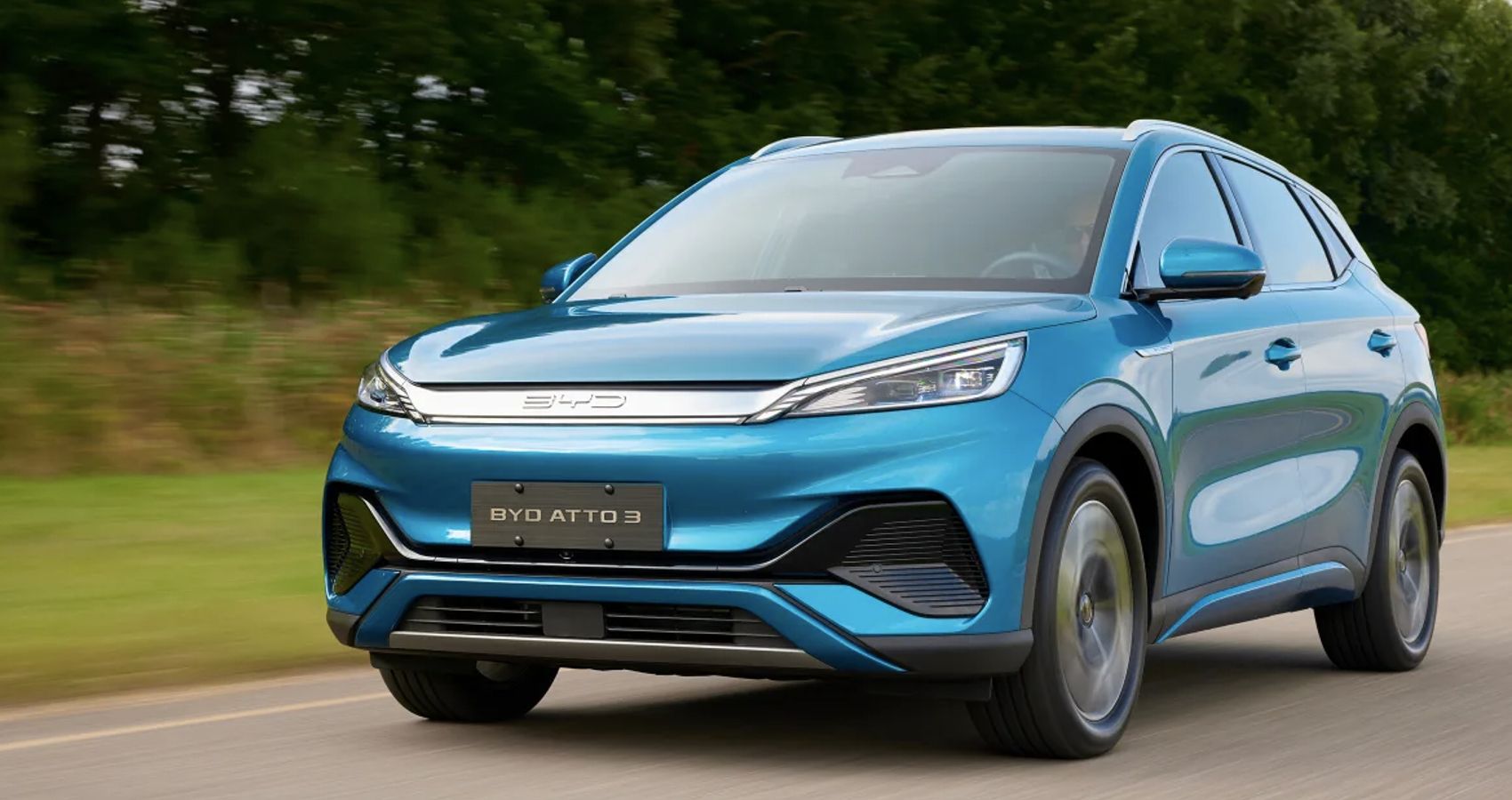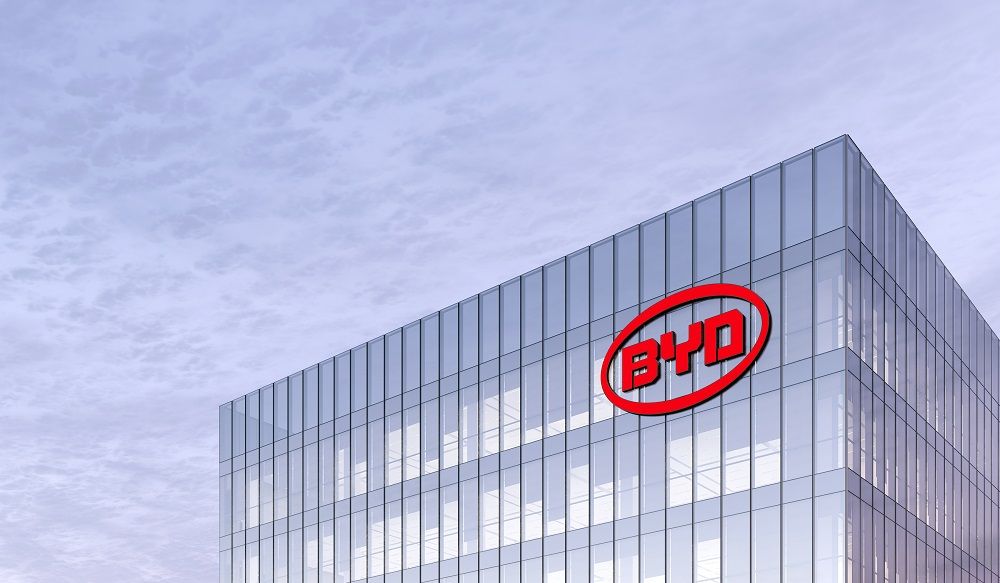By now, everyone knows China leads the world in electric cars. “China retains the top position when it comes to progress toward an electric vehicle (EV) future. Battery manufacturing and supply chain control remain key drivers in this, with China accounting for 122 out of the world’s 200 lithium giga-factories,” says Engineering and Technology. The article uses a study by Ernst and Young as the foundation for its argument. Elon Musk shares the same logic, and he even wrote on Tesla’s Weibo account, “Few seem to realize that China is leading the world in renewable energy generation and electric vehicles. Whatever you may think of China, this is simply a fact.”
Unquestionably, China is the global leader in electric vehicles, and in this extremely cut-throat industry, some companies stand out. BYD, for example, had a stellar year once more. CNBC says that sales more than doubled in May, securing the company's ascent into the top three automakers in China. For the first five months of the year, the Chinese electric vehicle firm followed FAW-Volkswagen, which took the first position when it came to sales. The third in ranking was Changan Automobile, as per data by the China Passenger Car Association. For those who aren’t familiar with the Chinese EV company backed by Warren Buffett’s Berkshire Hathaway, here’s everything we know about BYD and its cars.
This Is How It Started
In 1995, Chinese tycoon Wang Chuanfu established BYD, a Shenzhen-based company that has two important affiliates, BYD Automobile and BYD Electronic. While in the West, the company is famous for its affordable EVs, the reality is that BYD also manufactures hybrid vehicles, electric buses, battery-powered bicycles, trucks, solar panels and batteries. In 2003, BYD acquired Xi'an Tsinchuan Auto and officially went into the business of car manufacturing. Fast-forward to 2005, and the company introduced its first vehicle, the BYD F3, followed by the world's first mass-produced plug-in hybrid passenger car, the BYD F3DM, in December 2008.
“The F3DM is the world's first hybrid car that is not reliant on specialized electric charging stations. It is the cutting-edge product to the global green auto industry,” said the president of BYD, Wang Chuanfu.
In the upcoming years, BYD recorded stellar growth thanks to its battery arm, and in 2010, it overcame Apple and Amazon.com and secured the first position in Bloomberg Businessweek's 12th Annual Tech 100 List. Elsewhere, Daimler AG and BYD entered a 50-50 joint venture focused on research and development of electric vehicles. Five years later, the Chinese company announced an alliance with Alexander Dennis, the UK’s leading bus producer, to build electric buses. BYD reached another major milestone in 2016 when it concluded a deal with Shenzhen's Pingshan district to construct the SkyRail, the city’s monorail system. Unfortunately, the company paused the project because of new regulations. And in 2020, BYD gave Tesla a serious blow when it revealed its Blade Battery, which is considered safer than traditional lithium iron phosphate batteries.
This Is How BYD Competes With Tesla Globally
Tesla is famous for its outrageously pricey models, and BYD renowned for its inexpensive cars and cost-effective EVs. In essence, BYD has taken the exact opposite course from Tesla, choosing to dominate the world market with inexpensive automobiles. But what’s striking is that buyers don’t view BYD vehicles as cheap Chinese knockoffs, and their positive reputation precedes them. In fact, customers know that when they purchase a BYD vehicle, they get an innovative car that makes use of the most modern technologies. And BYD’s customer-centric approach and commitment to innovation is clearly paying off. Not for nothing, the automobile company sold in China 113,768 new energy passenger vehicles last May.
To be fair, it’s not just China’s middle-class that has warmed up to BYD and its affordable cars. Thanks to the partnership with Keolis Nederland BV, the Chinese company has secured the largest single order for electric buses ever placed in Europe. And in January, BYD announced another major milestone – it delivered over 70,000 electric buses to customers worldwide. It is safe to assume that BYD is winning the conflict, given that Tesla continues to concentrate mainly on sedans and is still having difficulty putting the Cybertruck into production.
Another big difference is the approach to politics and public affairs. While Elon Musk appears to enjoy inciting disputes and provoking influential people like President Biden and President Putin, Wang Chuanfu adopts a totally different strategy. The “high-achieving” leader was “orphaned as a teen and raised by his elder brother and sister,” says Forbes. Being born in “one of China's poorest provinces” and coming from humble beginnings marked Wang, who excelled in his education and professional life, but despite his success remained humble, grounded and respectful of authority. Accordingly, when Musk makes headlines for his remarks about Putin or Biden and shocks investors and customers with his arrogant attitude, Wang stays in the news for his respectful relationship with authorities. Last August, when Premier Li Keqiang visited BYD’s headquarters in Shenzhen, he expressed his commitment to uphold preferential policies that increase EV sales and boost demand. Without a doubt, a leader's haughtiness reflects adversely not only on him but also on the entire organization, whereas diplomacy opens up more opportunities.



.jpg)